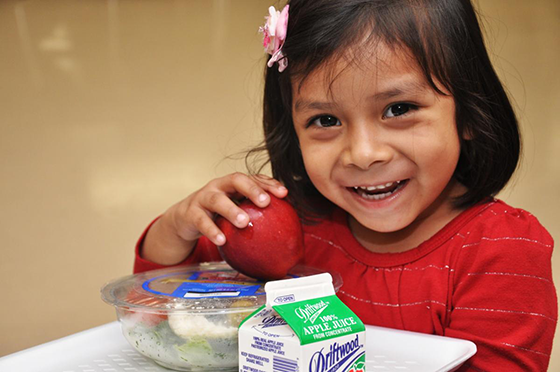Want Latino Students to Succeed? Help Them Start the Day Right
 With Mother’s Day around the corner, we would do well to remember a piece of advice that mothers have given their children for years: eating breakfast is the best way to start your day.
With Mother’s Day around the corner, we would do well to remember a piece of advice that mothers have given their children for years: eating breakfast is the best way to start your day.
Teachers echo this sentiment, knowing firsthand how hard it is for children to pay attention when they are hungry. For some families, a rushed morning schedule means children don’t eat before they head to school. For others, a tight budget means there simply isn’t enough food for breakfast every day.
A study by the Food Research and Action Center (FRAC) examines participation in the School Breakfast Program, which provides free and reduced-cost morning meals to children from low-income and poor families. The study suggests that this program is underutilized, despite the fact that nine out of 10 schools offering free lunches also offer free breakfasts. For every 100 children enrolled in the School Lunch Program, only about 53 also receive a free breakfast.
Keep up with the latest from UnidosUS
Sign up for the weekly UnidosUS Action Network newsletter delivered every Thursday.
An NCLR policy brief shows that Latinos make up a large share of children (more than one-third!) who are eligible for free or low-cost school meals but are not receiving them. Barriers include lack of language access or transportation, and concerns or confusion about application requirements. Given that school-based meals increase children’s energy and help them take in sufficient nutrients, it is of great concern that so many qualified Latino children who need free meals are missing out.
 The FRAC study highlights best practices that schools use to help more children start the day off right. Schools with the highest participation rates make breakfast easy and convenient: they provide classroom delivery for meals eaten during morning announcements, grab-and-go bagged meals to be eaten on the run, and a “second chance” breakfast service after the first period of class.
The FRAC study highlights best practices that schools use to help more children start the day off right. Schools with the highest participation rates make breakfast easy and convenient: they provide classroom delivery for meals eaten during morning announcements, grab-and-go bagged meals to be eaten on the run, and a “second chance” breakfast service after the first period of class.
Even better are the schools that offer free breakfast to all students, although this is a benefit offered primarily by large schools with a majority low-income student body. Families at these schools do not have to worry about requirements or fill out paperwork, nor do their children need to arrive early in order to eat—breakfast is free and built into the school day for all students. Local news reports highlight the benefits of universal free breakfast service, including improved behavior and attention in the classroom.
We urge schools to follow these best practices and read FRAC’s study to learn how to improve participation, streamline the enrollment process, and offer free breakfasts to all students. It is imperative that school administrators, counselors, teachers, and anyone else who works with parents and children communicate in a culturally competent manner as they enroll more children in the School Breakfast Program. The application is available in Spanish, too.
NCLR considers the school breakfast and lunch programs crucial for Latino children, many of whom already face challenges in school. We must make use of every tool available to help Latino students succeed.

